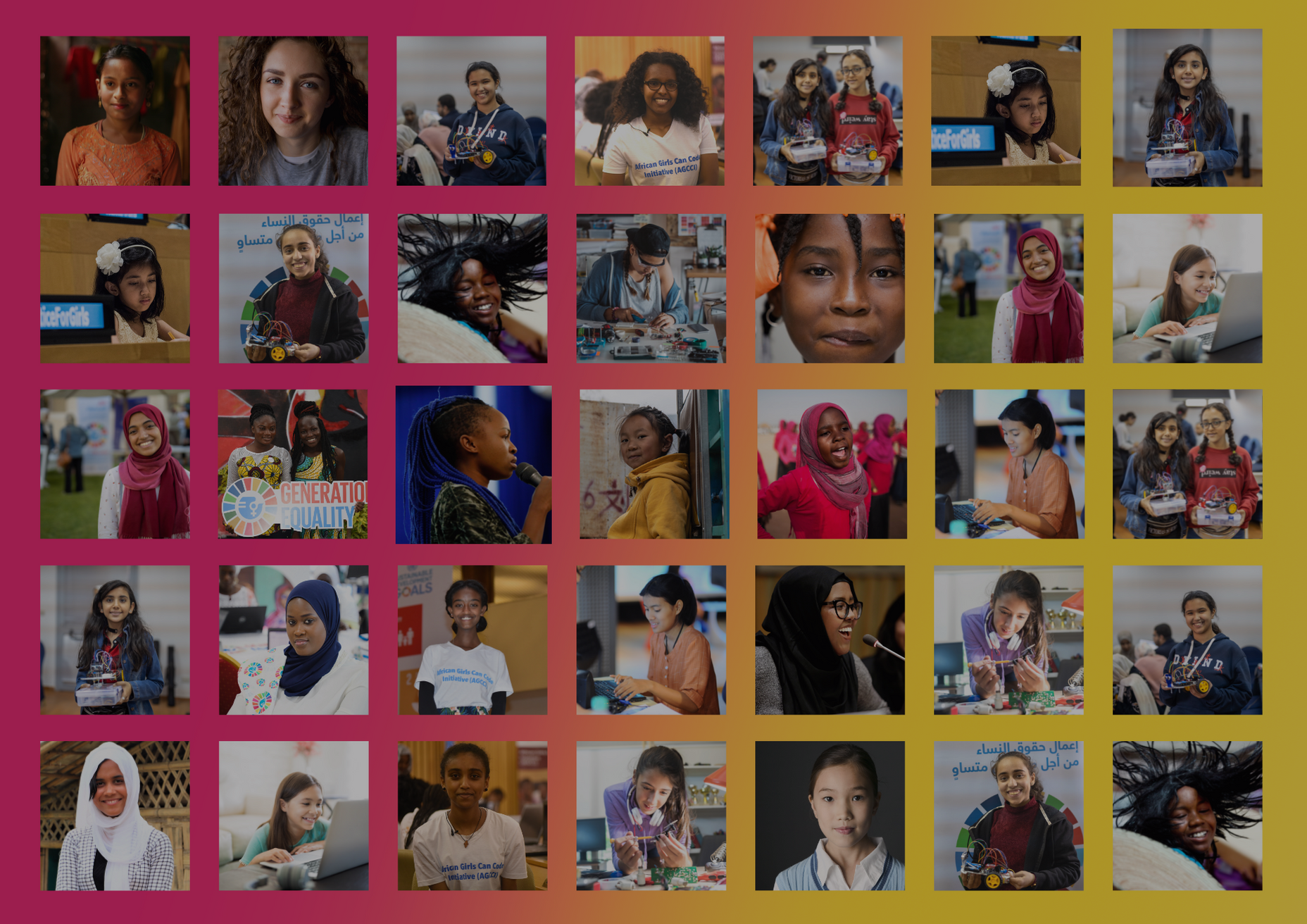
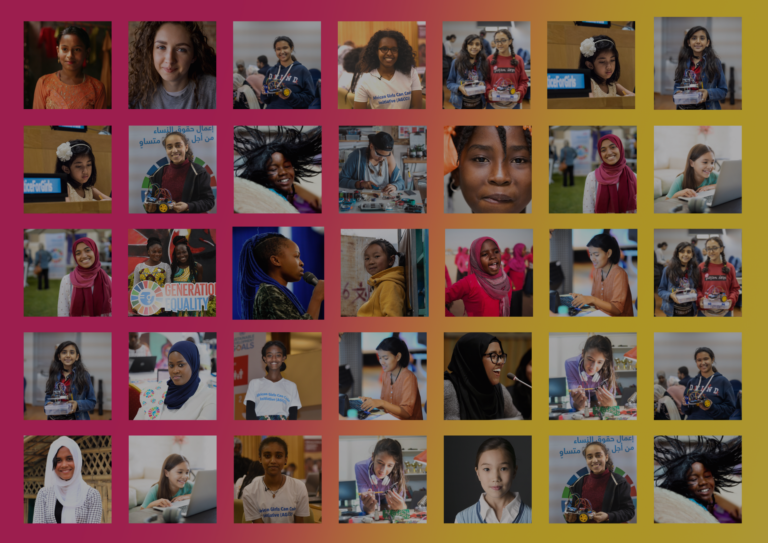
A girl's place is as a technology expert
Day of the Girl 11 October
International Day of the Girl was appointed by the United Nations to recognize girls’ rights and the unique challenges girls face around the world and to create a world where girls can live free from discrimination and violence.
On Day of the Girl, UN Women Finland encourages everyone to do their part in ensuring that girls can claim their rightful place in the field of technology. Our goal is a world where girls’ opportunities to use technology and participate as creators and developers of technology are truly limitless. A girls’ place is as a technology expert!
Donate for Day of the Girl!
These donations enable young girls throughout Africa to gain access to programming classes and learn other important digital skills. Technology has an increasingly important role in our societies. The developers of technology define what kinds of problems technology offers solutions to – which is why technology is also a matter of equality. Girls must have an opportunity to learn digital skills and use those skills to develop solutions and tools that meet their own needs and priorities.
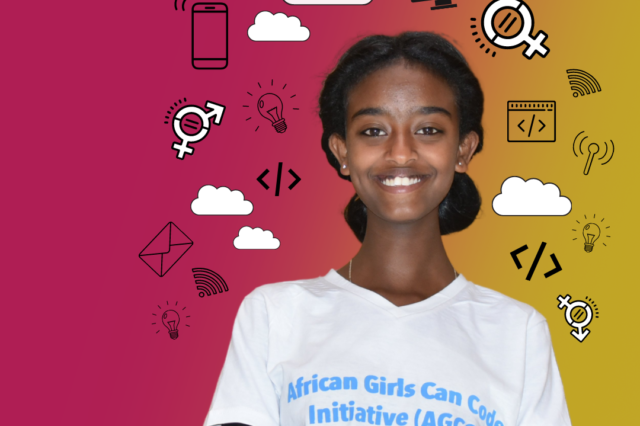
Corporate donation is an efficient tool for building a more equal future
Corporations have a significant role in ensuring that girls have access to coding classes and can obtain other crucial digital skills. In addition to coding camps, corporate donations can even help us influence national curriculums so that coding and digital skills are included and to ensure that those classes are also available to girls. An investment in the digital skills and empowerment of African girls is an excellent way to put into practice your company’s corporate social responsibility commitments, and a very concrete way to take part in building a more equal and just world.
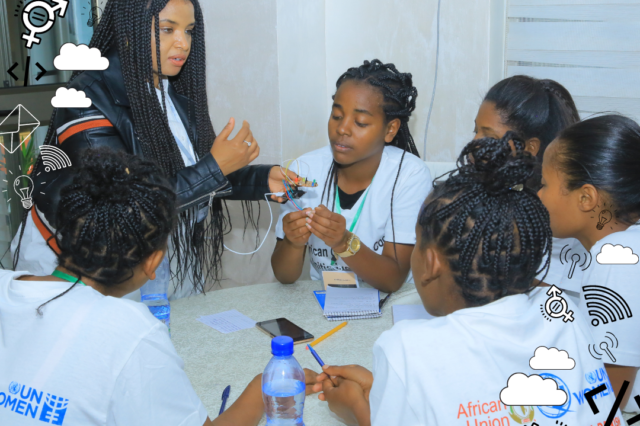
Providing girls across Africa with digital and business skills
African Girls Can Code Initiative (AGCCI) is a multi-year programme implemented jointly by UN Women, the African Union Commission (AUC) and the International Telecommunication Unit (ITU). The initiative, which launched in 2019, trains girls and young women between the ages of 17 and 25 from the African continent on coding and other digital skills. For many girls who participate in this programme, it works as a stepping stone towards a career in the programming and software industry all around the African continent.
Your donation makes this work possible. Through AGCCI we can ensure that African girls and women feel that they can use and take advantage of modern technology in their daily lives, they learn coding skills and other technical skills and feel empowered. The skills taught in this training are critical in today’s labour market, and through training girls, we can bring down the barriers that prevent women from being able to compete in the labour market equally.
In addition to coding skills and graphic design, the girls also learn about economic literacy, leadership and design thinking.
Why is it important that girls learn coding?
The World Economic Forum has estimated that about 65% of today's first graders will end up working in jobs that do not currently exist. Number of jobs in the STEM field will grow exponentially. Even 90% of future jobs will require the use of information and communication technologies.
For kids and young people to be able to keep up with the changing pace and find jobs in the labor market, they need to be equipped with the right skills. Additionally, young people need to be taught how to harness technology to build a more just and equal world.
About 60% of Africa's population consists of young people. This is why it is particularly crucial to ensure that the youth are prioritized and targeted with initiatives and interventions that teach tech skills, programming and coding. Technology and digital skills training is particularly important and valuable for girls and young women, because even today, girls and women still face additional barriers and prejudice when it comes to their presence in the technology sector or computer classes.
According to UNESCO data, two-thirds of the world's illiterate people are girls and women, which places a substantial barrier to them in terms of their ability to take advantage of technology and digital tools.
The gender division in the ICT sector is also very skewed, with women making up only about 30% of ICT professionals. The gender gap is even wider when it comes to people who are actually creating and developing the technology and digital tools we all use in our daily lives. If girls are not able to take part in creating and developing technology and cannot take advantage of using it in their own lives equally with boys and men, they will inevitably be left behind and cannot participate or voice their opinions and needs in their communities and at global arenas. Not having adequate tech skills will weaken their employment opportunities, and our societies also suffer if girls and women are not able to harness their skills and vision to create and develop technological solutions alongside with boys and men.
As the majority of the people who are currently designing and developing the technology we use are men, much of the tech solutions and digital tools are more suited for meeting the needs of boys and men than those of girls and women. For example:
It is crucial that girls and women learn ICT skills and that their skills and voices are present in the technology industry, so that issues if gender inequality, stereotypes and gender barriers can be improved, in the technology sector but also more broadly in our societies.
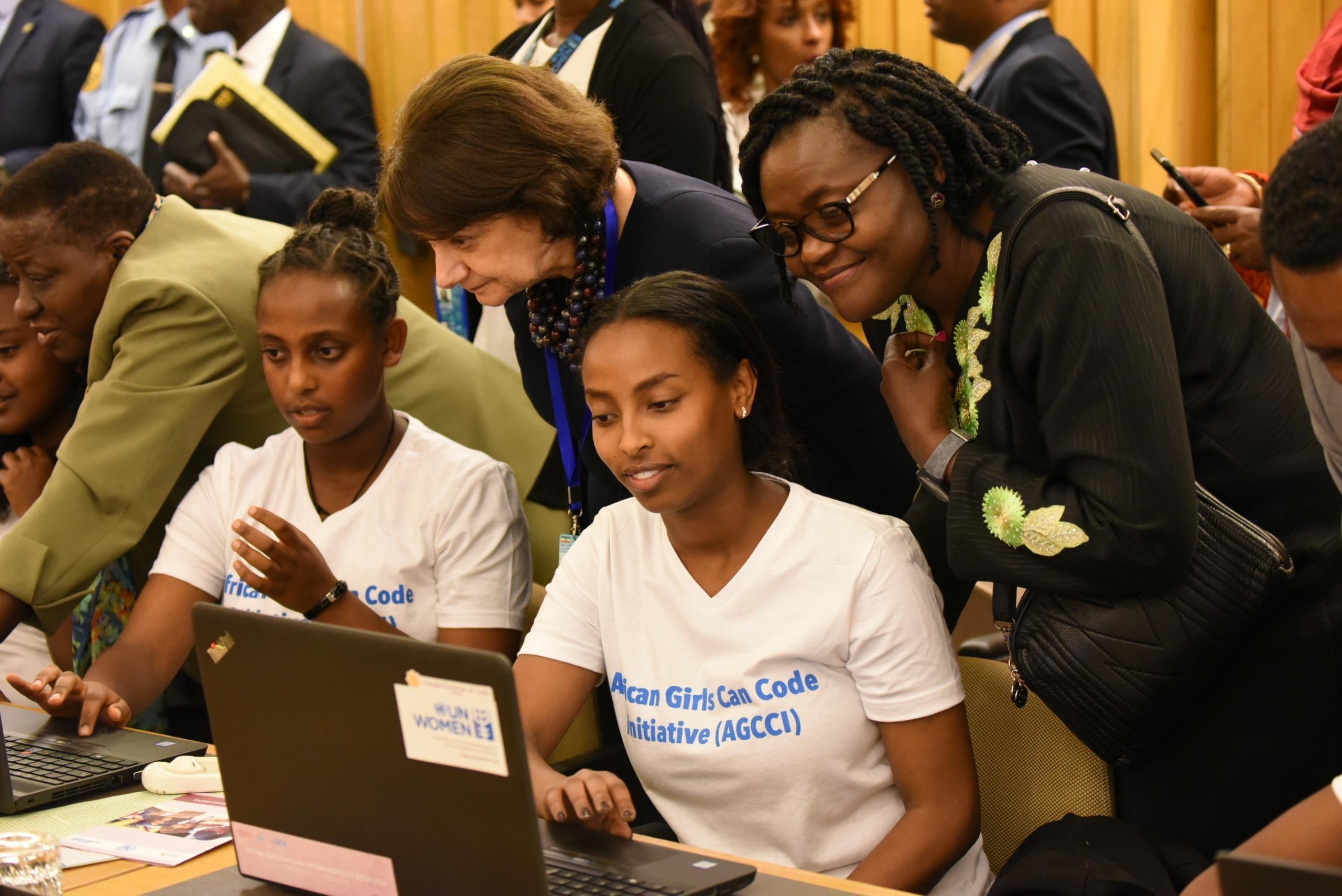
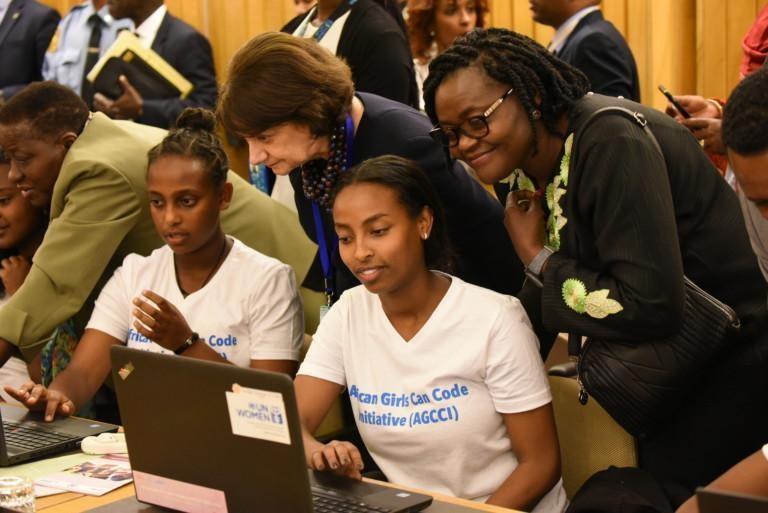
Pictures: UN Women / Kennedy Okoth



